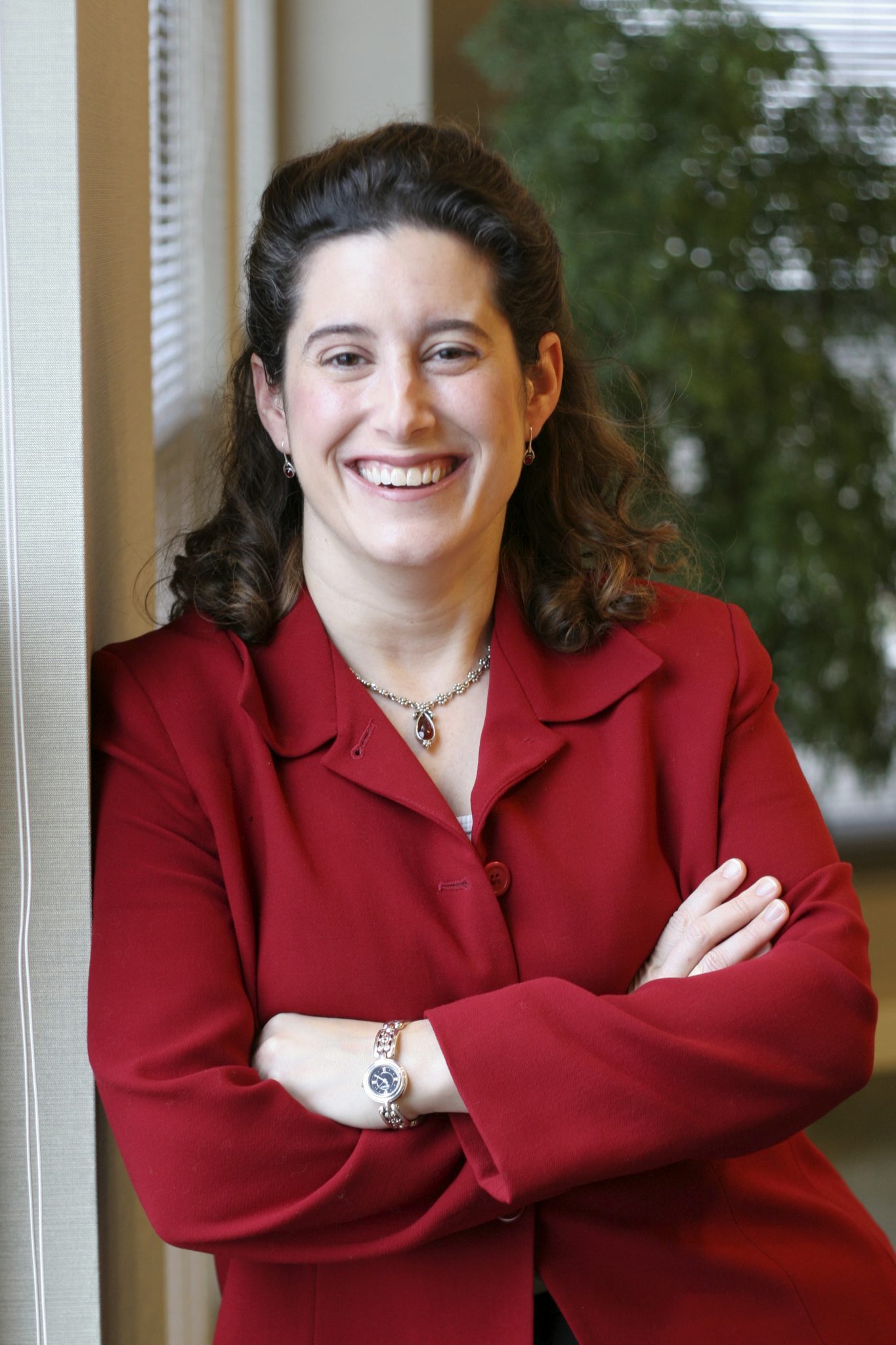Spotlight on Flex – Rebecca Springer
The Spotlight on Flex showcases professionals from member organizations who exemplify personal and professional success while working a flexible schedule. Their stories illustrate the long-term benefits that flexible schedules offer to both individuals and organizations.
For February 2018, we are pleased to share insights from Rebecca Springer, Partner, Crowell & Moring (Washington, DC).
Diversity & Flexibility Alliance: How have you made flexibility a priority and a success through your schedule?
Rebecca Springer: I started at Crowell & Moring as a first year associate after I graduated from law school. I knew I wanted to be in DC, and I knew I wanted to focus on labor and employment law. However, I also started at the firm thinking I would stay for a few years, make enough money to pay off my student loans, grow my legal experience, and then leave to figure out what I really wanted to do! No one was more surprised than I was when the firm turned out to be a great place for me to build a career. I’ve been fortunate to work at a great firm, with great people, do really interesting work, and have a fulfilling career, all the while being able to get married, have a family, and enjoy other outside interests like performing in a local singing group.
While I was mid-career, I thought about leaving because I wasn’t sure if I wanted to stay on the partner track. At the time, I thought the only alternative was to leave the firm and pursue something else. I talked with my practice group leaders, and they made it clear they wanted me to stay – my trajectory didn’t have to be a traditional path to partnership. They asked me what I wanted, and what I thought would be a realistic career path in order to stay; they let me know I was valued from the start. So for the past 10 years, I’ve worked reduced hours (ranging between 75% – 85%), and while working this flex schedule, I became a partner in January 2018.
I think it’s important for our profession to understand that flex shouldn’t just be a family or mommy issue. I started working flexibly before I had kids. My practice is largely a counseling practice which typically results in fewer billable hours than a litigation practice. I wanted flexibility to focus on building my practice without feeling I had to cave to the pressure of billing hours.
I’ve made flex a success in my career because I’ve been proactive; you have to think about what you’re able to do, what works for you, and what will work for the firm. You have to advocate for the schedule and structure (within reason) you want for your career. I’ve made flex a priority by having the willingness to say, “This is what I want for my career.” I am very fortunate to work for a firm that never valued me less or treated me differently simply because I asked for a different career path.
I think in order to be successful working a flexible schedule, you have to be as flexible with the firm as you are asking the firm to be with you. There are times I’m on calls or working later in the evening than I might want to be, but then there are times I can put work aside in the middle of the day to lead a Brownie meeting or go see the school play. Even though I have a reduced hours target, I don’t think anyone at my firm has ever doubted that I am 100% committed to our clients and our practice. Because of my commitment to the work, the firm has been committed to letting me forge a path that has worked for me.
Sometimes you can be your toughest critic when trying to decide whether to work a flexible schedule. It’s tough to get over the self-doubt and perception of, “Am I taking a step backwards by doing this?” I had to redefine what success meant to me. I had to convince myself that I didn’t have to bill 2000 hours every year in order to see myself as successful. My advice to others is be comfortable with your choices and know that everyone’s path is different.
DFA: How have the firm and clients contributed to your flex success? How has flexibility contributed to your business development and sustainability of working at a firm?
RS: The firm has been fantastic about encouraging me and others to have a flex schedule. There is no “second class citizen” feeling or distinctions with my full-time colleagues; flex is really accepted and recognized as part of the firm culture. From the client perspective, I would say 99% of my clients have no idea I work reduced hours – they just know I get their work done, and I do it well. That’s the key. I don’t hide my schedule, but it’s never been a question either.
Flexibility has given me more time to focus on contributing to the firm through various committees, non-billable business, and professional development opportunities because I don’t feel the pressure to be billing all the time. I can speak at conferences, learn new subject areas, etc. Having flexibility is what made it possible for me to stay at a big firm for my career. I never would have remained at the firm if there had been only one career path or a strict “up or out” philosophy.
DFA: Looking back, what would you tell your first year associate self? Would you do anything differently?
RS: I would start thinking earlier about what I wanted my career to look like, and how was I going to get there. I specialized within labor and employment, and that’s served me very well. I was able to build an expertise around the intersection between employment law and government contracts; having a niche really helped me to develop skills that were valued and build my reputation both within and outside the firm. One key piece of advice I would give to anyone who wants to create a different career path is to find a way to contribute that makes you unique and ensures you add value.
It’s possible to have a really rewarding career in big law if you’re proactive about advocating for yourself. I was very fortunate that there was willingness to create a flex schedule and career that works for me. I know that’s not always the case at every firm or within every practice group. But you still have to ask for what you want; you’ll never know what will work unless you do.
DFA: How do you pay it forward, and how do you recharge your batteries?
RS: I try to pay it forward by being supportive of other attorneys who want to work a flex schedule. I’m open about my choices and my career path, and I encourage others to advocate for what they want. I want to show them, especially now as a partner, that success is possible without being on a traditional path.
To recharge, I’m always looking for ways to do more with my kids (who are 7 and 8 years old). They are at a great age where they are old enough where we can do really fun things with them, but they are young enough that they still think my husband and I are cool – I know that probably won’t last long! I also indulge in my love for musical theater whenever I can and see shows in DC or New York!
If you are a professional working a flexible schedule and would like to share your story in an upcoming Spotlight on Flex, contact Eliza Musallam.







